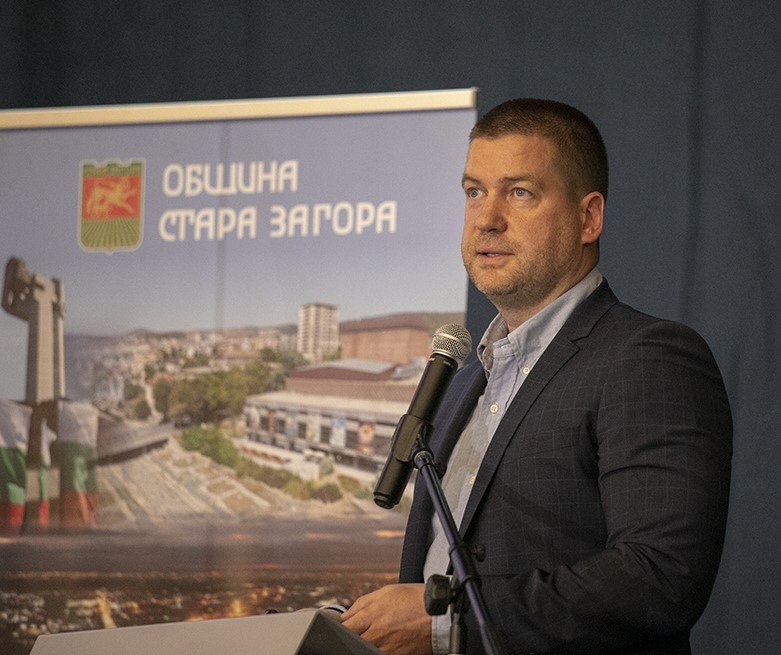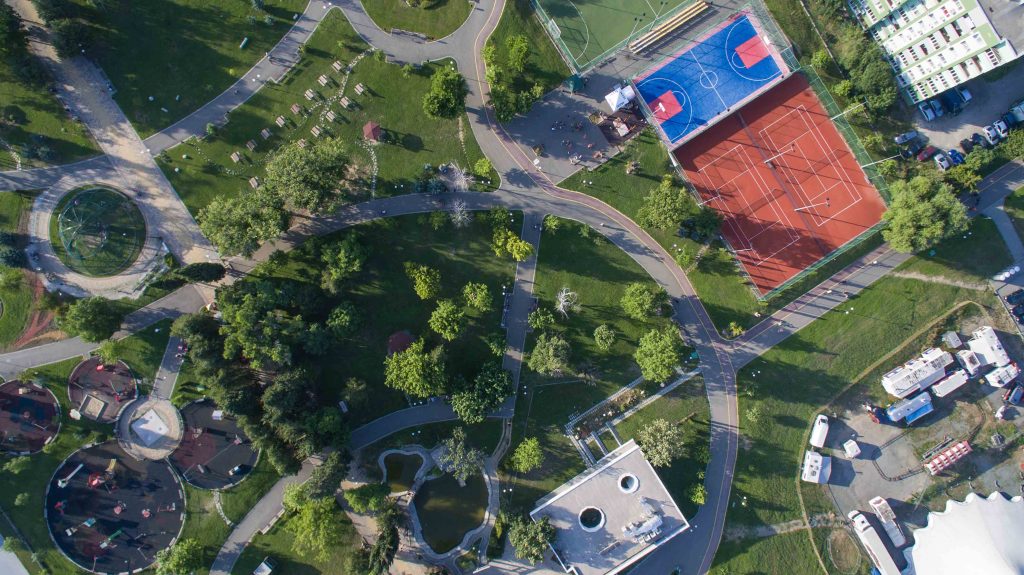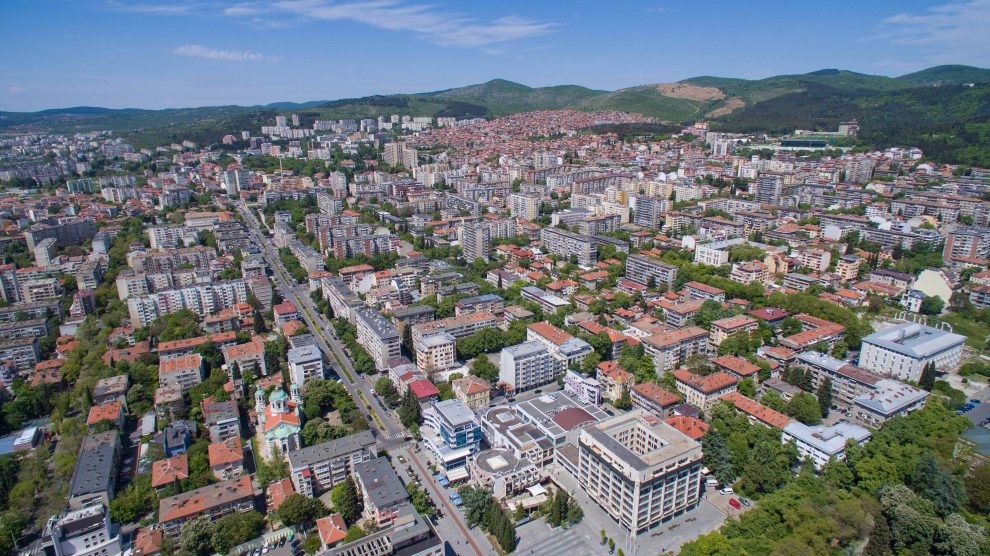Stara Zagora in Bulgaria has become a hub of innovation in several key sectors, from automotive to renewable energy. Emerging Europe speaks with the city’s mayor, Zhivko Todorov, about its progress, and its plans for the future.
Close to the geographical centre of modern Bulgaria, Stara Zagora’s history is long, and storied. There were settlements here as far back as 8,000 BC, while around 7,000 BC iron ore was being mined in the region, and copper produced. Manufacturing and industry are not, for Stara Zagora, modern additions.
Today, the city is the fifth largest in Bulgaria, boasts a workforce of more than 165,000 people, and an unemployment rate of just 4.3 per cent. GDP is amongst the highest of any city in the country, and its universities and technical schools and colleges produce thousands of graduates each year.
- CEE’s EU members need innovation for a new growth model
- Once considered peripheral, CEE has become integral to the EU’s economic wellbeing
- CEE can put itself at the heart of the global supply chain
Indeed, nurturing talent remains a key part of the city’s development agenda, says Zhivko Todorov, Stara Zagora’s mayor, particularly when it comes to renewable energy, a sector the city is keen to advance further.
“The local government is investing in education and training programmes to develop a skilled workforce, crucial for supporting the growth of the renewable energy industry,” he says.
“Through partnerships with universities and research institutions, Stara Zagora is fostering innovation, ensuring that the city remains at the forefront of renewable energy and energy storage technologies.”
Connectivity
One of Stara Zagora’s standout features is its exceptional connectivity. The city is within a district that is well-connected to four major European transport corridors—Corridors IV, VIII, IX, and X—providing direct access to key economic centres across Bulgaria and Europe.
“This robust transport infrastructure supports efficient logistics operations, a crucial advantage for businesses involved in manufacturing, renewable energy, and export-driven industries,” adds Todorov.
“The district’s proximity to major airports and ports further enhances its appeal, making it a natural logistics hub for companies looking to expand their reach across European and global markets.”

Stara Zagora Mayor Zhivko Todorov
Additionally, the municipality has streamlined administrative processes to attract more businesses. For example, construction procedures take a maximum of 105 days from the time of applying for a design permit until the certificate of entry into operation is received. “These are designed to make it easier for companies to set up operations and grow here,” says Todorov.
Stara Zagora offers a reliable and cost-effective energy supply, essential for energy-intensive industries. The district also boasts a comprehensive electrical grid and gas transmission network. This ensures businesses, particularly in manufacturing and data centres, have reliable access to essential utilities, says Todorov.
Elenino and Zagore
Central to the district’s economic development strategy are two key industrial zones: Elenino and Zagore.
“These zones have already attracted over 376 million euros in investments, creating more than 2,000 jobs,” Todorov tells Emerging Europe.
“We offer highly competitive land lease rates with all the necessary built infrastructure in order to match the companies’ needs,” he adds, highlighting the financial viability for companies looking to establish operations.
“Additionally, operational costs, including waste management fees, are significantly lower than in other parts of Europe. This cost-effectiveness, combined with strong infrastructure, enhances Stara Zagora’s appeal as a lucrative investment destination.”
However, while one of Stara Zagora’s most compelling advantages is its ability to offer exceptional value for money, “it’s not just about being cheaper,” says Todorov. “It’s about offering a high return on investment.”
That includes offering a culture of innovation. Stara Zagora has been emerging as a regional innovation and technological development hub for sometime, thanks to a growing ecosystem that welcomes and fosters start-ups, research, and collaboration.
The city has placed particular emphasis on renewable energy, IT, and automation, positioning itself as a focal point for innovation-driven companies and entrepreneurs.
Additionally, partnerships between local universities, tech companies, and international investors are paving the way for Stara Zagora to become a vital player in Bulgaria’s broader digital transformation agenda, helping the district compete on both the national and European stages, says Todorov.
Innovation and high-tech industries
In recent years, the city has attracted notable investments from major automotive players. Akwel, a key supplier in the industry, invested 15 million euros in the region and was granted Class A investor status.
Similarly, Nedschroef, another automotive parts manufacturer, invested 10 million euros and earned Class B status.
“These success stories underline the city’s growing importance in the automotive supply chain,” says Todorov.

The city is also expanding its digital infrastructure—a further commitment to innovation—making significant strides in high-speed internet and telecommunications. “This development supports the increasing presence of high-tech industries such as IT and telecommunications, further diversifying the local economy,” says Todorov.
Engineering and industrial expertise
“Our district has a strong tradition in engineering and industrial innovation,” he adds. Indeed, it could be argued that the tradition dates back almost 50 years.
“This tradition is now being channeled into emerging sectors like renewable energy and IT, thanks to specialised educational institutions and vocational training centers that ensure a steady supply of skilled professionals.”
These local educational institutions, such as Trakia University, play a pivotal role in maintaining this skilled workforce.
The university’s Medical Faculty, for instance, attracts a substantial number of international students, making up about 15 per cent of its student body. “This diversity contributes to a globally minded academic environment,” says Todorov.
The multiplier effect
Stara Zagora’s ability to attract investment is well-illustrated through success stories like Akwel and Nedschroef.
Both companies chose Stara Zagora due to its strategic location, well-developed infrastructure, commitment to innovation, and skilled labour force. And their success encourages others.
“Their investments have created a multiplier effect,” says Todorov, “boosting the local economy and generating further business opportunities.”
The district’s success in attracting high-profile investments is also attributed to its strategic approach to foreign direct investment (FDI). Stara Zagora has been recognised with FDI awards, highlighting its proactive efforts to attract global investors.
These accolades underscore the district’s ability to create a favourable business environment through financial incentives from the national government, streamlined administrative processes, and targeted support.
It’s also a great place to live, Todorov says, noting that it has won plaudits for its environment, childcare, healthcare, and educational institutions.
“Our city can boast an opera house, puppet, drama and music theatres among its cultural attractions, and hosts international opera, ballet and film festivals each year. In 2017 meanwhile, Stara Zagora was the European City of Sport,” Todorov adds.
Green transition and future outlook
As part of its commitment to the green economy, Stara Zagora is transitioning from a coal-dependent economy to one that is carbon-neutral.
This shift is creating new investment opportunities in renewable energy, energy efficiency, and green technologies. But, “our green transition is about more than reducing carbon emissions,” emphasises Todorov. “It’s about creating a resilient and diversified economy.”

The automotive sector is also poised to benefit from the global shift towards electric vehicles (EVs), with Stara Zagora positioning itself to attract investments in EV component manufacturing.
Moreover, as traditional industries modernise and new sectors emerge, the region is focused on retraining its workforce to meet the needs of a greener, more innovative and sustainable economy.
‘An environment where businesses can thrive’
To further attract investors, Stara Zagora offers a comprehensive suite of incentives. These include financial support for vocational training, reimbursement of social security costs, grants for R&D, financing the construction of technical infrastructure, and more.
“We have structured these incentives to cater to businesses of all sizes and sectors,” says Todorov. Companies can also benefit from the region’s 10 per cent flat tax rate for both corporate and personal income taxes.
Companies in Stara Zagora can also benefit from the possibility of an R&D expenditure write-off, further encouraging investment in innovation.
“Additionally, there is accelerated depreciation over two years for computers and new manufacturing equipment, further incentivising technological upgrades and modernisation,” adds Todorov.
With this blend of strategic planning, robust infrastructure, a skilled workforce, and a commitment to sustainability, Stara Zagora is fast becoming one of Bulgaria’s most attractive investment destinations.
“We’re creating an environment where businesses can thrive,” says Todorov, “and that’s what makes Stara Zagora stand out.”
This content was produced in collaboration with the municipality of Stara Zagora and the European Commission’s Directorate General for Structural Reform Support. The interview with Zhivko Todorov took place on September 24.

